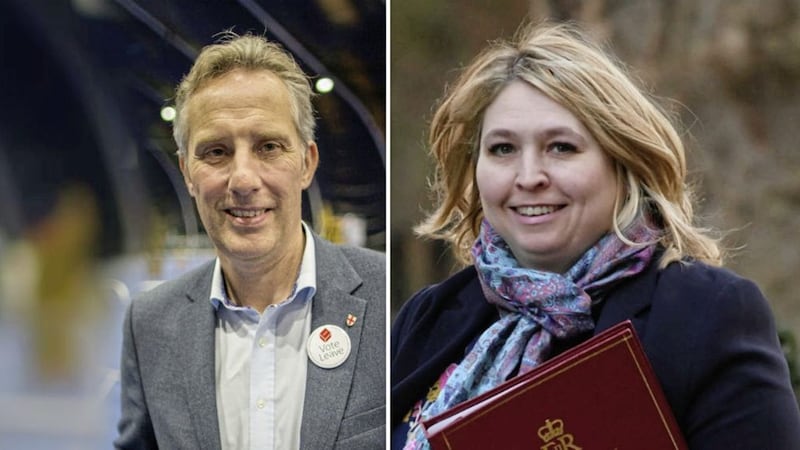IAN Paisley wrote to Secretary of State Karen Bradley lobbying for her to give councillors in Northern Ireland a 50 per cent pay rise.
The DUP MP said that in Stormont's absence, councils "bear a considerable burden" and outlined calls for "assistance local authority members ought to be in receipt of".
His letter included notes of a meeting he held with councillors which detail proposals to increase their basic annual wage from £14,485 to £21,727.
The paper also proposes introducing a severance scheme for departing councillors and enhanced pension benefits for those in post for more than 20 years.
Mr Paisley's letter, sent to Ms Bradley in March last year, was obtained by The Irish News through a freedom of information request.
Read More: Councillors' letter lobbying for wage 'equality' with MLAs and MPs
It emerges after this newspaper revealed in December that councillors have been lobbying Stormont civil servants for wage "equality" with MLAs and MPs.
Here is DUP MP Ian Paisley's letter lobbying NI secretary Karen Bradley to give councillors a pay rise.
— Brendan Hughes (@brendanhughes64) March 18, 2019
Yes, I was affronted by the use of an exclamation mark too.
Full @irish_news story https://t.co/GheC2LL6os pic.twitter.com/IHrsFoe3NO
The basic salary for MPs is £77,379. MLAs usually receive £49,500 but this has been cut to £35,888 due to Stormont's collapse.
The National Association of Councillors' Northern Ireland branch (NACNI) wrote to departmental officials last year calling for an "urgent review" of remuneration and benefits.
The union has also been meeting with Stormont's main parties to seek support.
Its updates to councillors describe meetings with parties including Sinn Féin reps who were "sympathetic to our case", and Mr Paisley who "supported our view that councillors deserved better remuneration".
In his letter to Ms Bradley, Mr Paisley said he met with the union's representatives and encouraged her to "meet with the same grouping... to hear from them first-hand the needs in regards to local government".
The North Antrim MP said: "I know you are working hard to try and re-establish devolution which is in all of our interests but in the meantime local authorities continue to bear a considerable burden for local government decisions and who knows in the future may obtain more powers if the assembly continue to fail to meet!
"With that being the case I enclose for your attention some notes that were made at the meeting so as you can see the case they are making with regards to the assistance local authority members ought to be in receipt of.
"I trust you would consider the points they have raised and advise me how you intend to respond to them and I will be more than happy to continue to liaise with the councillors and let them know of any support that can be given to them that is practical and will be delivered to them."
The letter included notes from his meeting with councillor reps at his Ballymena constituency office.
The notes read: "Objective: To bring councillors' allowances and benefits closer to those received by other representatives such as MLAs and MPs."
Under the heading "some proposals", the notes read: "Councillors' basic allowance is raised by 50 per cent to £21,727 (still less than half of an MLA's salary)."
It also proposes an "ongoing severance scheme for all departing councillors" and "pension enhancements for councillors with over 20 years' service".
In "additional notes" the paper says "'equality' means 'comparability'", "councillor's role needs professionalised" and "better remuneration would encourage more young people to be councillors".
Ian Duncan, parliamentary under-secretary of state, responded in a letter in May.
He said the Northern Ireland secretary has no power to intervene in relation to councillors' allowances and benefits, and the British government's priority is restoring devolution.
Northern Ireland has not had a power-sharing government since the DUP and Sinn Féin-led executive fell apart in 2017.
Both parties insist they want devolution restored, but disagree over issues including same-sex marriage and an Irish language act.
NACNI is funded by the north's 11 councils and is made up of councillors acting as delegates from each authority.
Asked if the DUP supports wage increases for councillors, a party spokesman said: "The lack of a functioning assembly has been offered as one of the reasons to increase councillors' allowances.
"The DUP wants to see the assembly and executive restored immediately and have put no red-lines or preconditions in the way of this happening."








